What is the difference between antibodies and interferons/ definition of interferons and antibodies with examples/ function of interferon and antibodies/ interferon versus antibody/ how do you compare/ distinguish interferon and antibodies.
Table of Contents
What are antibodies and interferons?
Antibodies are class of immunoglobin proteins secreted from Beta cells, which have a specific immune response and work as third line of Defence against antigens or microbes, slow in action but give a long lasting protection against antigens.
Interferons are class of antiviral proteins, involve non specific immune response, work as second line defence, quick in action and give temporary protection against microbes.
As we know that interferons are antiviral protein, are a group of proteins diet play a major role in immune system during the first line defence and interferons highway multiple function in the immune system antibody a protective protein what is by immune system response to use pathogens out foreign substances called antigen antibody recognise latch onto and pigeons in order to remove them from the body.
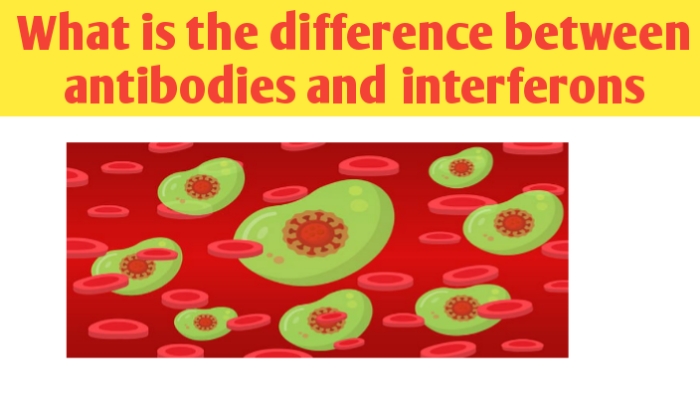
Antibodies and interferons differences, definition and examples
How does antibodies differ from interferons?
The key difference between antibodies and interferons is that antibodies are class of immunoglobin proteins secreted from Beta cells, which have a specific immune response and work as third line of Defence against antigens or microbes, slow in action but give a long lasting protection against antigens whereas interferons are class of antiviral proteins, involve non specific immune response, work as second line defence, quick in action and give temporary protection against microbes.
How do you compare antibodies and interferons?, when we compare between interferon and antibodies is that 1) Interferons second line of defence of body which involve non-specific response while antibodies are third line of defence of body which involves a specific immune response, 2) Interferons are of having different classes in type 1 interferon, type 2 interferon, type 3 interferon while antibodies are having are having different classes like IgG, IgM, IgA, IgD, IgE, etc, and 3) Interferons are quick in action but give a temporary protection against microbes while antibodies are slow in action but give a long lasting protection against antigens.
Hi guys in this article we know about definition of of interferon and antibodies with examples, types and functions and compare between /differences between/ and contest between interferons and antibodies.
Define the interferons?
Definition of interferon:- interferon of group of signalling proteins made a release by immunogens cell response of presence of viruses, interferons belong to the large class of protein known as cytokines molecules is for communication between cells to trigger the protective defence of immune system that help in the indicating pathogens like a virus interferons are named for the ability to interfere with viral replication by protecting cells from virus infection.
What are the functions of interferons?
The function of interferons are the following:- 1) Interferons help in the activating immune cells such as natural killer cell and macrophage, 2) Interferon increase host defence by up regulating antigen presentation by virtue ofincreasing the expression of major histocompatibility complex antigens, and
3) Interferon can also support suppress angiogenesis by downregulation of stimuli derived from tumor cells.
You can also click on the given link to see others topic in our website and YouTube channels
● Purines and Pyrimidine compare
What are the types of interferons?
Interferons are mainly three types:-
1. Type 1 Interferon(IFN)
2. Type 2 interferon (IFN)
3. Type 3 interferon (IFN)
What is antibodies?
Definition of antibodies:- Antibodies or immunoglobin is a glycoprotein that is made by plasma cells in response to an antigen and can be organised and bind to the antigen that cause its production antibodies by and antigen with high degree of specificity and affinity antibodies recognise a variety of three dimensional shapes amino acids lipids and carbohydrate antibodies have more than 1 nitrogen combining site.
What is basic structure of immunoglobulins or antibodies?
The basic structure of immunoglobulins or antibodies are the following:- the basic unit of cal haemoglobin molecule consists of four polypeptide chain link by disulfide bonds- 1) Two polypeptide chains of low molecular weight cal light chain L, and B) Two polypeptide chain of high molecular weight called heavy chain H
What are examples of antibodies?
Examples of antibodies are antibodies A (IgA), antibodies B (IgB), antibody M (IgM), antibodies K(IgK) and Antibodies D(IgD)
What is function of antibodies?
The function of antibodies are the following:- 1) Antibodies help in the neutralization of of bacterial cell, 2) Antibodies help in the agglutination, in which antibodies glued together pathogen sales in two clumps that are attractive targets for phagocytosis, and 3) Antibodies help in complement activation in which antibodies are latched onto a foreign sale encourage compliment to attack it with a membrane attack complex which leads to the following lysis of foreign cell and encouragement of inclination by chemotactic attracting inflammatory cells.
What is the difference between antibodies and interferons?
This question is very important for class 8th 9th 10th 11th and 12th students who are preparing for competitive and annual board examination.
Regarding this, “what is difference between antibodies and interferons?, the key differences between antibodies and interferons are the following:- 1) Interferons are are produced by any microbial infected cell specially virus while antibodies are produced by plasma B cells only, 2) interferons induced the healthy cell to synthesise the antimicrobial protein while antibodies selectively bind today specific antigen immobilize them easy engulfing by phagocyte, and 3) Interferons are quick in action but give temporary protection against microbes while interferons antibodies are slow in action but given longlast protection against antigens because of memory cell.
List five main differences /comparison/ distinguish / versus and differentiate between interferons and antibodies are as follows:-
1. interference are produced by any microbe infected cells while antibodies are produced by plasma B cells only.
2. Interference leave infected cell and enter nearby healthy cells to dispose of the microbes while antibodies pass into to and circulate in blood and lymph to dispose of antigens.
3. Interference Induce the healthy cell to synthesise antimicrobial protein that check microbial multiplication while antibodies selectively bind to antigen that are immobilized for is attack by phagocytes.
4. interferons are quick in action but give a temporary protection against microbes while antibodies are slow in action but give a long lasting protection against antigens.
5. Interference act inside cells while antibodies act outside the cells.
6. Interference form the body’s second line of defence while antibodies formed the body’s third line of defence.
What are the features and characteristics of interferons?
Characteristic and features of interferons:-
1. interferons are special defence system works specifically against viral infections.
2. Interferons has no effect on microorganism
3) Cells invade by virus produce in anti viral protein called interferon.
4. Interferons have proved effectively in treating cold influenza hepatitis but not succeed against cancer.
5. interferons number increases during the sickness and fever.
Important features and characteristics of antibodies?
Features and characteristics of antibodies:-
1. Antibody consists of 3 globular region of Yshape.
2. Antibodies unit consists of four polypeptide chains two identical heavy chains and two identical light chain conducted by disulfide bonds.
3. The antibodies paratype interacts with antigens epitope antibody and antigen interact by special complementary lock and key.
4. The binding between antibody and antigen is reversible and the antibody is affinity towards an antigen is relative red and absolute.
5. Antibodies are consist of five classes immunoglobulins IgA,IgD,IgE,IgM and IgB
Conclusions:- interferons are antiviral proteins and antibody are immunoglobulin which fight against antigen and provide protection of the body from the pathogens.


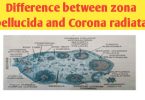
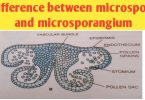
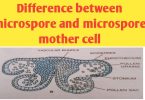

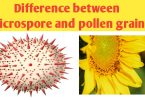
Leave a Comment